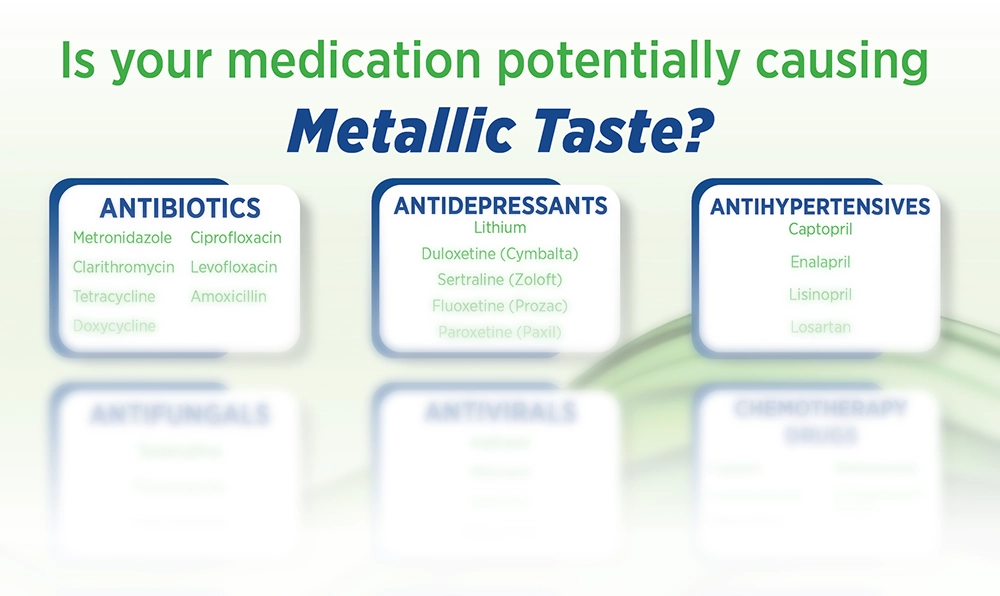

Have you ever experienced a metallic taste in your mouth? It’s not a pleasant sensation, and it can significantly affect your enjoyment of food. Interestingly, taste perception is not solely dependent on the taste buds on our tongues. Our oral health plays a crucial role in how we experience flavors, and as we age, changes in oral health can have a profound impact on taste perception.
In this article, we will explore the relationship between metallic taste, aging, and oral health, shedding light on how these factors intertwine.
Before delving into the topic at hand, let’s first understand how taste works. Our sense of taste is complex and multi-faceted. It involves taste buds, which are small sensory organs located on our tongues and other parts of the mouth.
Taste buds contain receptors that can detect different taste qualities: sweet, sour, salty, bitter, and umami (savory). These receptors send signals to the brain, allowing us to perceive and differentiate various flavors.
A metallic taste, also known as dysgeusia, is a condition characterized by an abnormal taste sensation in the mouth, often described as a metallic or bitter flavor. Several factors can lead to the development of a metallic taste. These include certain medications, such as antibiotics and chemotherapy drugs, as well as dental problems like gum disease, oral infections, or poor oral hygiene. Other potential causes include nutritional deficiencies, hormonal changes, and even systemic conditions like kidney or liver diseases.
Individuals experiencing a metallic taste may also notice additional symptoms, such as a dry mouth, altered sense of smell, or changes in appetite. These symptoms can significantly impact the overall eating experience and may lead to a reduced intake of certain foods.
As we age, our bodies undergo various changes, and our oral health is no exception. The aging process can affect the structure and function of our taste buds, leading to alterations in taste perception. Older adults may experience a decline in taste sensitivity, making it more challenging to detect subtle flavors. This diminished taste perception can contribute to a loss of appetite and a decreased enjoyment of food.
Moreover, age-related factors like the use of certain medications, chronic medical conditions, and age-related oral health issues can further exacerbate taste-related problems. It is essential for older adults to be aware of these potential changes and take proactive measures to maintain good oral health.
Oral health plays a critical role in taste perception. Poor oral hygiene, dental infections, and gum diseases can disrupt the normal functioning of taste buds and affect taste perception. Additionally, conditions like a dry mouth (xerostomia), which is common among older adults, can cause an imbalance in the oral environment and alter taste sensations.
Certain dental treatments, such as the use of dentures or dental implants, can also impact taste perception. Ill-fitting dentures or poor oral hygiene practices with prosthetic devices can introduce discomfort and affect the taste experience.
Several oral health issues are prevalent among older adults and can influence taste perception. Gum disease (periodontitis), tooth decay, oral infections, and tooth loss are among the most common conditions. These oral health problems can lead to inflammation, pain, and discomfort, making it difficult to enjoy food fully.
Additionally, the presence of oral infections can release harmful bacteria into the mouth, further compromising taste sensation.
Maintaining good oral health is crucial for preserving taste perception, especially as we age. Here are some strategies to enhance taste perception and support oral health:
If you wear dentures, make sure they fit properly and clean them regularly according to your dentist’s recommendations.
By implementing these measures, you can maintain optimal oral health and promote a healthy taste experience.
Taste perception is a fascinating aspect of our sensory experience. The relationship between metallic taste and aging highlights the intricate connections between our oral cavity and our ability to savor flavors.
As we age, it becomes increasingly important to prioritize oral health care to preserve taste perception and overall well-being. By adopting good oral hygiene practices, seeking professional dental care, and being aware of the potential oral health issues associated with aging, we can continue to enjoy the pleasures of food and maintain a high quality of life.
